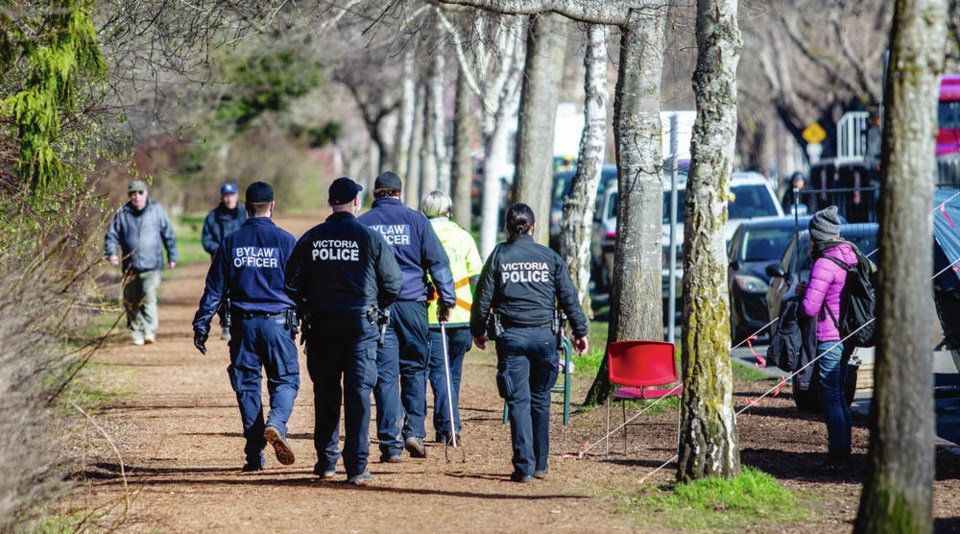There has been a lot of buzz recently around why our regional crime rate is so high. I’ve been working as a community safety and security specialist for almost three decades, and this is a question we should always be asking ourselves — as residents, business owners and leaders.
Crime rates can change rather quickly as we’ve certainly seen in many cities around the world, including right here in our own backyard. I have been writing, lecturing and conducting projects addressing crime prevention for as long as I can remember, and we’ve now found ourselves in quite a conundrum in Victoria, as well as some other communities on Vancouver Island.
We can certainly blame some of it on the pandemic, and the public health emergency that our leaders keep referring to, but that’s only one piece of the puzzle. Many of these issues were upon us long before COVID-19 struck.
If we’re going to flatten the crime curve we had better start considering more alternatives than our police and security services. Every city requires them, but when do you draw the line and start being more proactive? The research around crime prevention, social development and working upstream has never been greater — and it’s evidence-based.
Many professionals, including myself, argue that our system is fractured, and needs a major overhaul. Police officers I’ve known throughout my career, and those working in the field of corrections, the courts, social work and mental health, would probably agree. As consultants, we hear this all the time, and yet very few things seem to change. We all continue working away at these issues when in many cases the solutions are right in front of our face.
We could start by embracing local wisdom — our residents, and neighbourhood associations. Often, we tend to look abroad, adopting other programs and initiatives that may be extremely costly to implement.
I’ve spoken to hundreds of residents and other people in our city since moving to Victoria four years ago. I’m always amazed at some of their ideas, but are leaders really listening? In many cases it seems to be more of the same, which supports the famous quote “insanity is doing the same thing over and over again and expecting different results.”
Within the next few months there will be another option for citizens to explore — a new grassroots group dedicated to community safety and well-being for Vancouver Island. It will eventually operate as a non-profit network or social enterprise.
This came about as a result of conversations with various citizens in coffee shops and over Zoom, and began last fall. It was very informal, and brought together an incredibly diverse group of people. About a dozen citizens of all ages are involved, including an artist, graphic designer, musicians, a writer, health-care professionals, placemakers and others who are passionate about finding better alternatives for safer neighbourhoods, and downtowns.
I’m reading a great little book called The Archer, and the author Paulo Coelho sums it up nicely: “Your allies will not necessarily be the kind of dazzling people to whom everyone looks up to and of whom they say ‘there’s none better.’
“On the contrary, they are people who are not afraid of making mistakes and who do, therefore, make mistakes, which is why their work often goes unrecognized. Yet they are just the kind of people who transform the world and, after making many mistakes, manage to do something that can make a real difference in their community.”
This new network will be all about finding a balance, empowering citizens, collaborating and sharing knowledge based on evidence and best practices.
The logo is in development by local artist and illustrator Lydia Beauregard, who has captured the essence of this new network and the work it will do in communities across the Island.
Many of us will remember playing on a see-saw when we were children. It was all about maintaining balance, which is something that doesn’t exist when we remain dependent on law enforcement, security and target-hardening the world around us.
The acronym for this new Vancouver Island network will be CSAW — community safety and well-being.
Steve Woolrich is a crime-prevention practitioner and the principal of Rethink Urban’s collaborative focusing on community safety and well-being.



